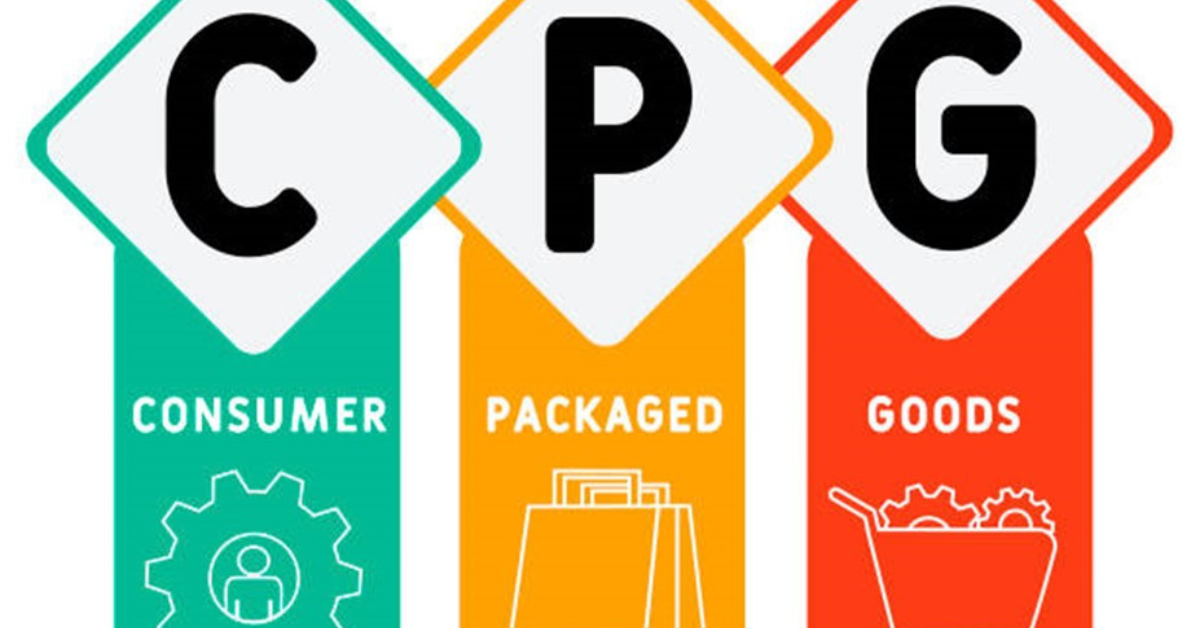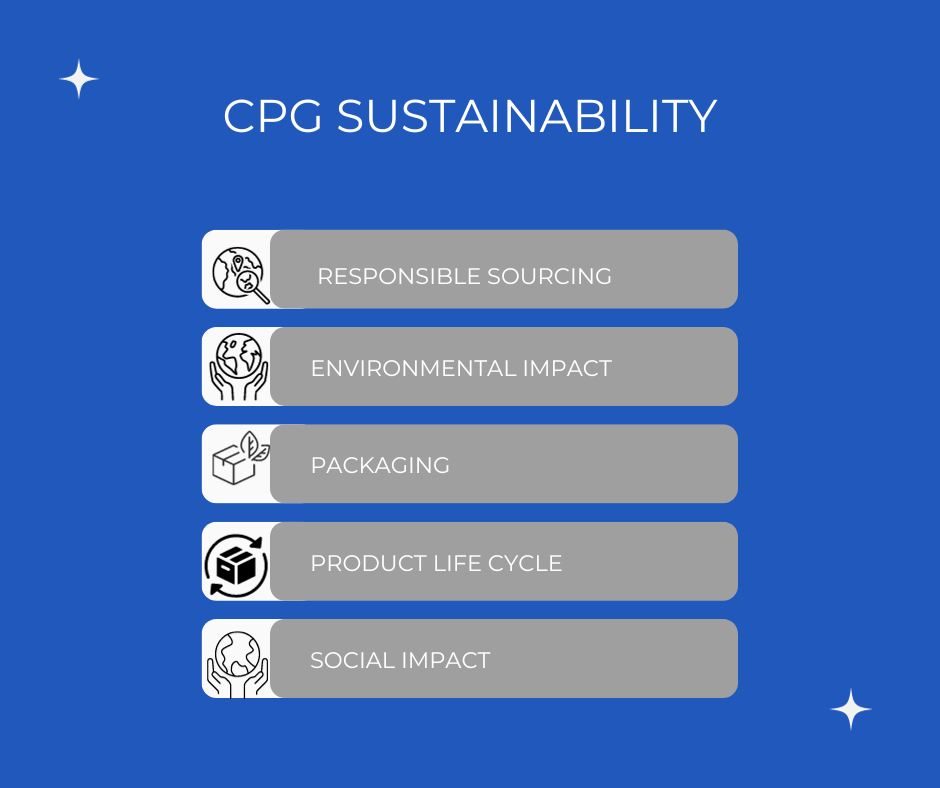Contact: +91 99725 24322 |
Menu
Menu
Quick summary: Discover the critical role of CPG sustainability in driving business success. Learn how sustainable practices can enhance growth, consumer trust, and long-term viability in today’s eco-conscious market.

The pressure on Consumer-Packaged Goods (CPG) companies to embrace sustainability is intense. Yet, many businesses struggle to implement meaningful changes that go beyond surface-level efforts. The reality is CPG sustainability is not just a trend; it’s a necessity for long-term survival and success.
Companies that fail to prioritize sustainable practices risk not only their reputation but also their market share in an increasingly eco-conscious marketplace. The challenge lies in transforming supply chains, reducing waste, and ensuring that every product lifecycle decision aligns with environmental goals. The question is, how can CPG companies overcome these challenges to truly make a difference?
According to Consumer Goods Technology, the CPG industry is poised for a change. And that’s a good thing, given that the production of food and consumer goods accounts for 60% of greenhouse gas emissions, 80% of water usage, and 66% of tropical forest loss.
Key Takeaways
Consumer preferences are evolving, and sustainability is taking center stage. Today, they are in search of more than just products; they are in pursuit of values. CPG companies that make sustainability a priority are well-positioned to cultivate a dedicated and expanding customer base. This represents a new standard of efficiency and effectiveness in the business realm. It involves streamlining operations for both profitability and ecological health. Adopting sustainable practices can enhance a CPG company’s brand image and credibility. Shoppers are more inclined to trust and back companies that align with their values. In addition to the abstract benefits, there are concrete gains to consider. Sustainable methods frequently result in cost reductions by minimizing resource use, waste, and energy consumption. These savings can be redirected towards product innovation or passed along to consumers, enhancing the appeal of your offerings.
CPG companies, given their colossal influence on consumer behavior and global supply chains, have emerged as pivotal actors in steering environmental change. The choices they make reverberate across industries, making them central to the transformation towards a more sustainable and eco-friendly future.

One of the cornerstones of environmental change within CPG companies is the recalibration of packaging materials. A significant shift towards eco-friendly alternatives is observed, marking a departure from traditional materials that contribute to pollution and resource depletion.
In tandem with the shift in materials, CPG companies are embracing innovative packaging designs that prioritize waste reduction. From minimalist designs to multifunctional packaging, these innovations aim to minimize environmental impact while maintaining practicality and appeal.
Real-world examples provide tangible insights into the efficacy of sustainable packaging strategies. Case studies of CPG companies that have successfully implemented and navigated sustainable packaging initiatives offer valuable lessons for the wider industry.
By aligning with consumer values and meeting sustainability expectations, brands can boost their reputation, distinguish themselves from competitors, and appeal to environmentally conscious consumers. Sustainable packaging additionally contributes to cost savings by minimizing material usage, optimizing logistics, and streamlining operations.
CPG companies can significantly improve their sustainability by focusing on ethical practices and robust traceability throughout their supply chains. Here are some key strategies:
By prioritizing ethical practices and traceability, CPG companies can enhance their sustainability performance, build trust with consumers, and contribute to a more responsible and sustainable future.
Greenwashing refers to the practice of misleading consumers about a company’s environmental or sustainability efforts. It’s a growing concern and can damage a company’s reputation if exposed.
CPG companies play a crucial role in addressing climate change. By implementing effective carbon footprint reduction strategies, these companies can contribute to a more sustainable future.
Energy efficiency is a key pillar of CPG companies’ sustainability initiatives. This involves a strategic overhaul of manufacturing processes to minimize energy consumption, often achieved through technological advancements and process optimization.
The adoption of renewable energy sources is gaining momentum within the CPG sector. Companies are increasingly turning to solar, wind, and other renewable sources to power their operations, significantly reducing their carbon footprint.
Reducing carbon emissions requires a holistic approach. CPG companies are implementing strategies encompassing not only production but also distribution, including the use of electric vehicles, optimized logistics, and innovative packaging designs that reduce transportation-related emissions.
The transition from a linear to a circular economy is a transformative journey. CPG companies are integrating circular economy principles into their business models, promoting the reuse, recycling, and regeneration of materials to minimize waste.
By 2040, compared with business as usual, a circular economy has the potential to reduce greenhouse gas emissions from the production, use, and end-of-life of plastics by 25%
To minimize product waste, CPG companies are introducing initiatives that extend product life cycles. From designing products for longevity to actively promoting recycling programs, these initiatives contribute to a more sustainable and circular product lifecycle.
Effective waste management often requires collaboration with various stakeholders. CPG companies are forging partnerships with suppliers, retailers, and waste management organizations to create comprehensive waste management strategies that address the entire product life cycle.
Sustainability goes beyond environmental concerns; it also includes social responsibility. Numerous CPG companies manage intricate supply chains that span multiple global stakeholders. Upholding fair labor practices, ethical sourcing, and transparent supply chains is not only the right thing to do but also beneficial for business. Firms that ignore social responsibility risk tarnishing their reputation and may encounter significant legal repercussions.
By embedding sustainability into their business models, CPG companies can uphold ethical practices. This means performing thorough assessments of suppliers, guaranteeing fair wages and secure working conditions for their workforce, and actively participating in the communities they serve. Socially responsible CPG firms cultivate consumer trust, which can lead to enhanced customer loyalty and boosted
CPG companies are subject to various sustainability regulations. Compliance with sustainability regulations is crucial for CPG businesses to maintain reputation, avoid penalties, and ensure long-term viability. Sustainability regulations impact CPG companies’ operations, supply chains, and product design. CPG companies must navigate complex regulatory landscapes, including regional and international sustainability regulations.
Digital transformation offers immense potential to drive sustainability initiatives across various sectors. By leveraging technology, businesses and organizations can optimize processes, reduce waste, and improve resource efficiency.
Blockchain and other traceability technologies enhance visibility across the supply chain. CPG companies can track the environmental footprint of products from raw material sourcing to end-user consumption. This transparency aids in implementing and enforcing sustainable practices at every stage. Technology facilitates the adoption of innovative, sustainable practices. From using advanced materials in packaging to implementing energy-efficient manufacturing processes, emerging technologies contribute to reducing the environmental impact of CPG operations. Cloud-based collaborative platforms enable effective communication and collaboration with suppliers, distributors, and other stakeholders. These platforms facilitate shared goals, commitments, and real-time information exchange to drive collective sustainability efforts.
The TraceX sustainability platform empowers CPG companies to drive sustainability and measure their environmental impact with precision and transparency.
TraceX enables CPG companies to achieve full visibility across their supply chains, from raw material sourcing to the final product. By utilizing blockchain technology, the platform ensures that every transaction is recorded immutably, providing an accurate and tamper-proof account of the product’s journey. This transparency helps companies verify the sustainability of their sourcing practices, ensuring that they align with environmental and ethical standards.
TraceX offers advanced tools for tracking key sustainability metrics, such as carbon footprint, water usage, and waste generation. Companies can set specific sustainability goals and monitor their progress in real time. The platform’s analytics capabilities allow businesses to generate detailed reports, which are crucial for meeting regulatory requirements and communicating impact to stakeholders and consumers.
TraceX facilitates collaboration between CPG companies and their suppliers to ensure that sustainability standards are met at every stage of the supply chain. The platform enables companies to conduct supplier assessments, audits, and certifications digitally, streamlining the process and reducing the risk of non-compliance. By integrating sustainability into supplier contracts and agreements, companies can enforce eco-friendly practices and hold their partners accountable.
By leveraging TraceX, CPG companies can provide consumers with verifiable information about the sustainability of their products. This transparency builds trust and enhances brand value, as consumers increasingly seek out products that align with their environmental values. The platform allows companies to showcase their sustainability efforts through detailed product labels and digital certificates, reinforcing their commitment to a greener future.
The TraceX platform empowers CPG companies to make informed decisions based on real-time data. Whether it’s choosing sustainable suppliers, optimizing production processes, or identifying areas for improvement, the platform’s insights help businesses take targeted actions to reduce their environmental impact. This data-driven approach not only boosts sustainability but also enhances operational efficiency and cost-effectiveness.
Explore our Sustainability Platform
As the world continues to evolve, the role of CPG sustainability in business cannot be overstated. It is no longer just an option but a strategic imperative that drives growth, fosters consumer trust, and ensures long-term viability. By embracing sustainable practices, CPG companies not only reduce their environmental footprint but also position themselves as leaders in a rapidly changing market. The journey toward sustainability is challenging, but with the right tools and commitment, it is a path that leads to enduring success and a better future for all.
Sustainability is crucial for CPG companies because it helps them meet consumer demand for environmentally responsible products, reduce their environmental impact, and comply with increasingly stringent regulations. Embracing sustainability also enhances brand reputation, drives customer loyalty, and can lead to cost savings through efficient resource use and waste reduction.
CPG companies can measure the impact of their sustainability efforts by tracking key performance indicators (KPIs) such as carbon footprint, water usage, waste generation, and energy consumption. Tools like the TraceX sustainability platform provide real-time data and analytics, enabling companies to monitor progress, generate reports, and make informed decisions to improve their sustainability practices.
CPG companies often face challenges such as integrating sustainability into complex supply chains, managing costs associated with sustainable practices, and ensuring supplier compliance with environmental standards. Overcoming these challenges requires strategic planning, investment in technology, and collaboration with stakeholders across the supply chain.
